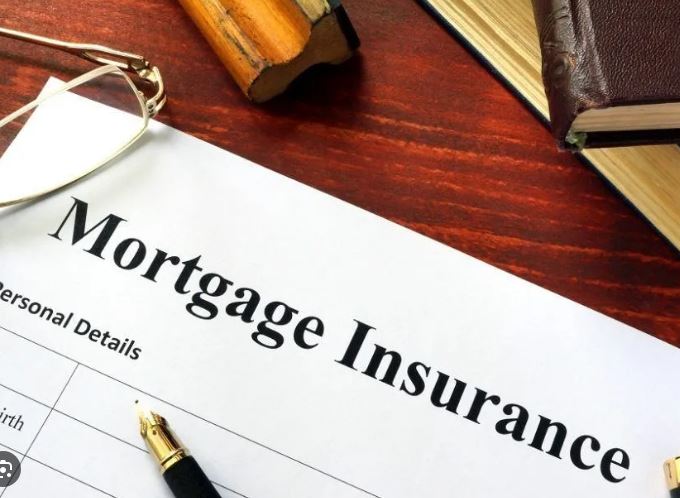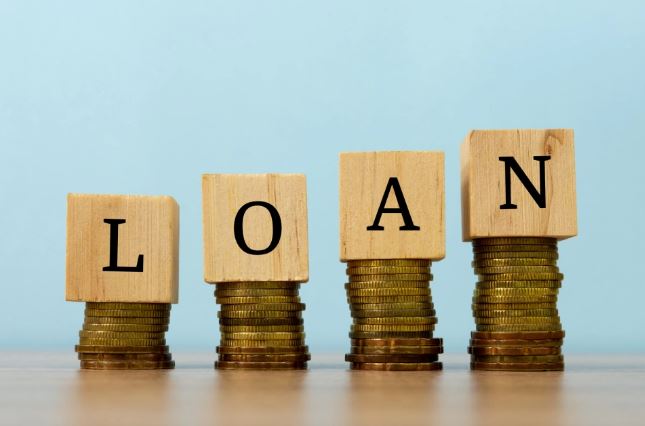In the ever-evolving landscape of real estate, understanding and navigating current mortgage home rates is crucial for prospective homeowners and those looking to refinance. The financial markets are dynamic, and various factors contribute to the fluctuations in mortgage rates. This comprehensive guide aims to shed light on the present scenario of mortgage home rates, helping readers make informed decisions about one of the most significant financial commitments they may undertake.
Current Landscape: Historic Lows and Market Trends
As of now, mortgage rates remain historically low, creating an opportune environment for individuals considering homeownership. The global economic landscape, marked by the aftermath of the COVID-19 pandemic, has contributed to a prolonged period of low interest rates. The Federal Reserve’s commitment to keeping rates near zero has a direct impact on mortgage rates, making borrowing costs more affordable for consumers.
However, it’s essential to approach the current low rates with a nuanced understanding. Economic conditions, both domestic and international, play a significant role in shaping the trajectory of mortgage rates. As economies recover and financial landscapes adjust, rates may experience shifts.
Factors Influencing Mortgage Rates
- Economic Indicators: Mortgage rates are intricately tied to various economic indicators. Key factors include inflation rates, unemployment figures, and GDP growth. A robust economy tends to push interest rates higher, while economic uncertainties may prompt central banks to keep rates low to stimulate borrowing and spending.
- Central Bank Policies: The actions and policies of central banks, particularly the U.S. Federal Reserve, have a direct impact on mortgage rates. The Federal Reserve sets the federal funds rate, influencing short-term interest rates, which, in turn, affect long-term mortgage rates.
- Inflation: Inflation erodes the purchasing power of currency over time. Lenders adjust interest rates to compensate for the expected loss of value in the future. When inflation is anticipated to rise, mortgage rates tend to follow suit.
- Housing Market Conditions: The demand and supply dynamics in the housing market also influence mortgage rates. A robust housing market with high demand for homes may lead to higher mortgage rates, while a sluggish market could result in lower rates to stimulate activity.
- Global Events: Global events, such as geopolitical tensions, natural disasters, or health crises, can create economic uncertainties, impacting mortgage rates. For example, the economic fallout from the COVID-19 pandemic led to a lowering of interest rates globally.
Strategies for Securing Favorable Rates
Given the current landscape, individuals looking to secure the best mortgage rates must employ strategic approaches:
- Monitor economic indicators: Stay informed about key economic indicators that influence mortgage rates. Regularly check inflation rates, employment figures, and GDP growth, as these indicators provide insights into the overall economic health.
- Understand Central Bank Communications: Keep an eye on communications from central banks, especially the Federal Reserve. Statements and policy decisions from central banks can signal the direction of interest rates.
- Financial Health: Maintain a strong financial profile. Lenders consider credit scores, debt-to-income ratios, and employment stability when determining mortgage rates. A healthy financial profile increases the likelihood of securing a favorable rate.
- Explore Mortgage Options: Understand the various types of mortgages available. Fixed-rate mortgages provide stable interest rates over the loan term, while adjustable-rate mortgages (ARMs) may offer lower initial rates but come with the potential for future adjustments.
- Consider Refinancing: For existing homeowners, exploring refinancing options in a low-interest-rate environment can lead to substantial savings. Refinancing involves replacing an existing mortgage with a new one, often at a lower interest rate.
The Role of Credit Scores
Credit scores play a pivotal role in determining the mortgage rates offered by lenders. A higher credit score generally translates to lower interest rates, as it reflects a borrower’s creditworthiness. Prospective homebuyers should strive to maintain a good credit score by paying bills on time, managing credit responsibly, and addressing any inaccuracies on their credit reports.
Shopping Around for the Best Rates
The mortgage market is competitive, with various lenders offering a range of products and rates. Shopping around for the best mortgage rates is a critical step in the home-buying process. Obtaining quotes from multiple lenders allows individuals to compare offers and negotiate more effectively.
Online mortgage comparison tools and platforms simplify the rate-shopping process. These tools provide a side-by-side comparison of interest rates, loan terms, and closing costs, empowering borrowers to make informed decisions.
Understanding Fixed-Rate and Adjustable-Rate Mortgages
Two primary types of mortgages—fixed-rate and adjustable-rate—present distinct advantages and considerations.
- Fixed-Rate Mortgages: These mortgages offer a stable interest rate throughout the loan term, providing predictability for homeowners. Monthly payments remain constant, simplifying budgeting. Fixed-rate mortgages are ideal for those seeking long-term stability and protection against potential interest rate increases.
- Adjustable-Rate Mortgages (ARMs): ARMs feature an interest rate that adjusts periodically based on market conditions. Initial rates are often lower than those of fixed-rate mortgages, making ARMs attractive to certain borrowers. However, there is a level of uncertainty, as rates can fluctuate over time. Borrowers considering ARMs should carefully evaluate their risk tolerance and future financial outlook.
Evaluating Affordability and Budgeting
Securing the best mortgage rate involves more than just finding the lowest interest rate. Affordability is a critical consideration. Lenders assess an individual’s debt-to-income ratio, which compares monthly debt payments to gross monthly income. A lower debt-to-income ratio enhances the likelihood of loan approval and favorable rates.
Prospective homebuyers should conduct a comprehensive budget analysis, factoring in mortgage payments, property taxes, homeowners insurance, and maintenance costs. Understanding the total cost of homeownership enables individuals to make informed decisions about the size and type of mortgage they can comfortably manage.
The Impact of Down Payments
The amount of the down payment also influences mortgage rates. A larger down payment typically results in lower interest rates, as it signifies a lower loan-to-value ratio. Lenders view larger down payments positively, as they represent a lower risk for the lender.
While the standard down payment is often around 20% of the home’s purchase price, there are various loan programs that allow for lower down payments, such as FHA loans with down payments as low as 3.5%. However, individuals opting for lower down payments may face higher interest rates and additional costs, like private mortgage insurance (PMI).
Timing the Market: A Delicate Balance
Timing the mortgage market can be challenging. Interest rates can fluctuate daily based on economic news, market conditions, and global events. While attempting to predict short-term rate movements is difficult, staying informed about broader economic trends provides valuable insights.
Individuals may consider consulting with mortgage professionals or financial advisors to gain personalized advice based on their financial goals and the prevailing market conditions. Professionals can offer guidance on when to lock in a mortgage rate to secure favorable terms.
Conclusion: A Holistic Approach to Mortgage Home Rates
In the realm of real estate, securing the best mortgage home rates requires a holistic and informed approach. Understanding the factors influencing rates, monitoring economic indicators, and staying abreast of market trends empower individuals to make sound financial decisions. Whether entering the housing market as a first-time homebuyer or considering refinancing options, the key is to approach the process with diligence and a comprehensive understanding of one’s financial position.
In this era of historically low mortgage rates, prospective homeowners have a unique opportunity to capitalize on favorable borrowing conditions. By combining financial prudence with market awareness, individuals can navigate the mortgage landscape with confidence, ultimately achieving their homeownership goals.
Frequently Asked Questions (FAQs)
- What is a mortgage? A mortgage is a type of loan specifically used to finance the purchase of real estate. It is a legal agreement where the borrower pledges the property being purchased as collateral for the loan.
- How do I qualify for a mortgage? Qualifying for a mortgage typically involves factors such as credit score, income, employment history, and debt-to-income ratio. Lenders assess these criteria to determine the borrower’s ability to repay the loan.
- What is a down payment? A down payment is a percentage of the home’s purchase price that the buyer pays upfront. It is not financed through the mortgage and serves as the buyer’s initial equity in the property.
- How Does Your Credit Score Affect Mortgage Rates? A credit score plays a crucial role in determining mortgage rates. Higher credit scores generally result in lower interest rates, while lower scores may lead to higher rates or potential difficulty in securing a loan.
- Fixed-Rate vs. Adjustable-Rate Mortgage (ARM): Which is Better? A fixed-rate mortgage maintains the same interest rate throughout the loan term, providing stability. An adjustable-rate mortgage (ARM) has an interest rate that may change periodically. The choice depends on individual preferences, risk tolerance, and financial goals.
- What is private mortgage insurance (PMI)? Private Mortgage Insurance (PMI) is a policy that protects the lender in case the borrower defaults on the mortgage. It is often required for loans with a down payment below 20%.
- How Much Can I Afford to Borrow? The amount you can afford to borrow depends on factors like your income, monthly expenses, credit score, and the lender’s criteria. Online mortgage calculators can provide estimates, but consulting with a mortgage advisor for personalized advice is recommended.
- What is loan pre-approval? Loan pre-approval is a process where a lender reviews your financial information and credit history to provide a preliminary commitment for a specific loan amount. It helps homebuyers understand their budget and demonstrates to sellers that they are serious and financially capable.
- How does refinancing work? Refinancing involves replacing an existing mortgage with a new one, often to secure a lower interest rate or adjust the loan term. It can be a way to reduce monthly payments, consolidate debt, or tap into home equity.
- Can I pay off my mortgage early? Yes, many mortgages allow for early repayment without penalties. However, it’s essential to check the terms of your specific loan agreement and consider the potential impact on taxes and other financial goals.
- What Closing Costs Should I Expect? Closing costs include fees associated with finalizing a real estate transaction. They may include appraisal fees, title insurance, attorney fees, and more. Typically, they range from 2% to 5% of the home’s purchase price.
- How Often Do Mortgage Rates Change? Mortgage rates can change daily based on economic conditions, market trends, and global events. It’s advisable to monitor rates regularly and, when ready, lock in a rate with your lender to secure favorable terms.
- Is homeowner’s insurance required for a mortgage? Yes, most lenders require homeowners to have insurance to protect their interest in the property. It covers damages to the home and personal liability. The cost may be included in your monthly mortgage payment.
- Can I refinance with bad credit? Refinancing with bad credit can be challenging, but it’s not impossible. Options may include FHA or VA streamlining refinances or seeking the assistance of specialized lenders. Improving your credit before refinancing is advisable for better terms.
- What Happens If I Miss a Mortgage Payment? Missing a mortgage payment can result in late fees and negatively impact your credit score. If financial difficulties arise, it’s crucial to communicate with your lender to explore possible solutions, such as loan modification or forbearance.







